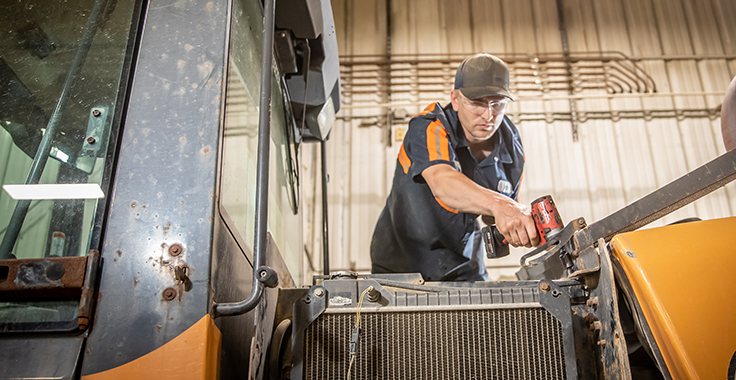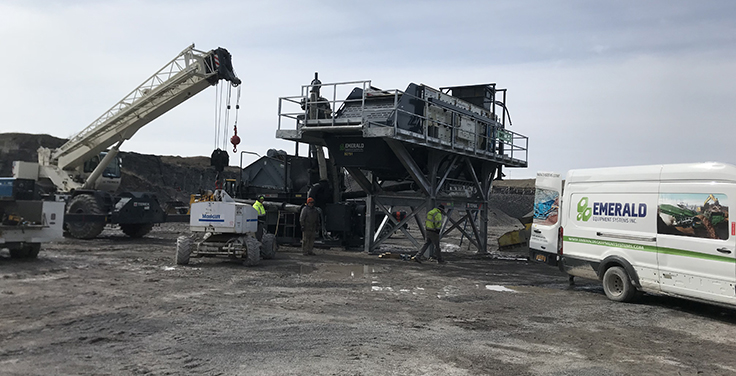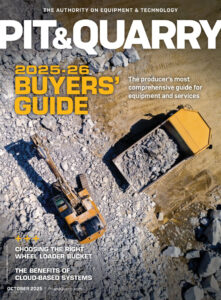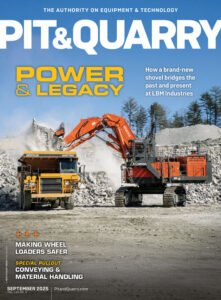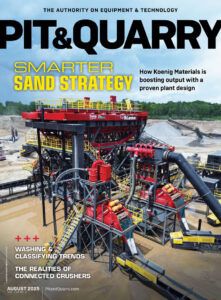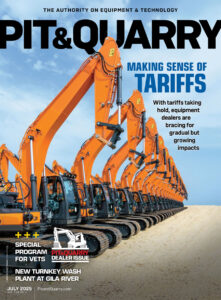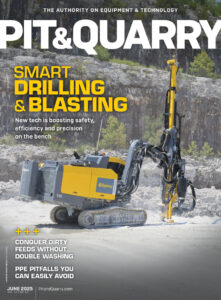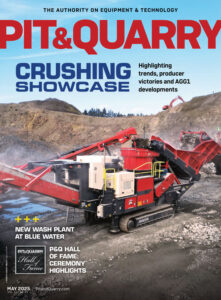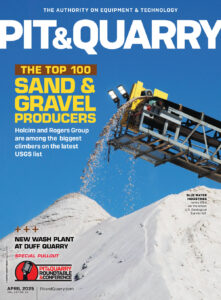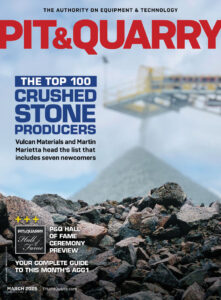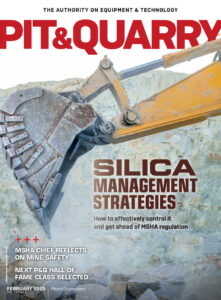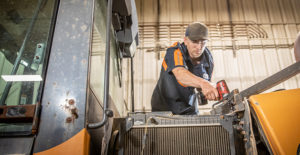
What factors ultimately bring dealers and manufacturers together to partner and serve a market? Is it the people? The equipment? Is it a blend of both, or some other unforeseen factor?
The formula for the perfect partnership depends on which dealer you ask, but dealers mostly agree that certain characteristics are must-haves in a partner, whereas others are nice if they can get them.
“The quality of the brand and the product is entirely important,” says Larry Hetzel, owner and CEO of Rock Machinery Co., based in Allenton, Wisconsin. “Having something that is high-quality where the customers want to buy it and I don’t have to worry about servicing it all the time is, for sure, the most important thing we look for.”
Quality is also the key for Chris Harris, con/agg manager at Ohio Cat.
“Being a Caterpillar dealer, Cat is our focus,” he says. “Caterpillar is considered top of the line. That’s a high standard to meet.”
To that end, Ohio Cat aims to partner with manufacturers who have high standards for their own equipment offerings.
“For my division, on the aggregate side, we’re going to look at something that we feel is of the quality of a Cat machine, that delivers the support of a Cat machine and goes along with Caterpillar equipment,” Harris says.
Other drivers
Trust is another factor that cannot be discounted. Bryant Fazer, president and sales manager at Rock Machinery Co., explains.
“You have to have that,” Fazer says. “[Manufacturers] have to stand behind the product. We’re here to service the product to the best of our ability and to make sure end users are profitable. So we’re looking for manufacturers to stand behind the product.”
Hetzel echoes Fazer’s sentiment.
“I’m still a firm believer in product loyalty from the manufacturer and dealer,” he says. “That would include the idea of trying not to represent companies of conflicting lines. That’s not always easy. Dealers, for the most part, try to represent everybody. But I really believe what’s best for the manufacturer is for dealers to have non-conflicting lines. I truly believe most companies can be more effective if they can work that way, because there is trust through the process.”
Effective communication along the way helps to build up trust among both parties, whereas a continuous lack of communication can be destructive.
“We just teamed up with Eagle Crusher,” says Tom Kovesci, general manager at Canton, Ohio-based Stone Products. “It takes no time at all to get a response from Eagle on a customer question or parts availability.”
But, as every dealer knows, manufacturers don’t always deliver those quick callbacks.
“When you call up [a manufacturer] and all you get is a recording and it’s three days before they get back to you – and, when they do get back to you with information, it’s often not what you want to hear,” Kovesci says. “Everything may automatically be 18 weeks out for parts. We’ve been through that. It’s not good, and you get some irate customers that way.”
Specializing
While factors like quality brands and communication contribute to successful manufacturer-dealer partnerships, dealers must also be constructed to handle a manufacturer’s equipment line.
For example, just because dealers represent a top brand does not necessarily mean they have the personnel in place to provide the aftermarket support the market expects.
“I turn a lot of people down based on the fact that I don’t think we will represent their product line right, even though [a manufacturer] may be choosing us to represent their product line,” says Sy Harrison, COO at Goodfellow Corporation, which has regional offices in four Western states. “We’re not a rolling stock/loader/excavator house. We don’t dabble in that world. It’s a different mindset.
“At the end of the day, it comes down to having common goals, a good product and a product you’re going to stand behind,” he adds.
Behind that philosophy, Goodfellow focuses on the rock crushing and asphalt paving universe. Those are areas the company excels in, Harrison says, so its energies are focused there.
Harrison contends that managing agg processing and rolling stock effectively is a daunting challenge for dealers. It can, however, be done if the right resources are in place to address both.
“General Equipment [& Supplies] does a good job of it,” Harrison says. “They have the people in place. You need dedicated professionals and an ownership who thinks the right way.”
As General Equipment & Supplies sales manager Micah Tysver describes, mastering both is not something a dealer can perfect overnight.
“It takes years of growing a business to be able to handle something like that,” says Tysver, General Equipment’s sales manager. “We pride ourselves in having service technicians who can handle this. We hire the right guys, train them and [offer] continuing education, certification and qualification for lines we carry.”
While some dealers offer agg processing and rolling stock services, their strength is sometimes on one side of the business or the other. Still, there are benefits to offering both, Tysver says.
“What those dealers would agree with me on is, a lot of times, if your aggregate is down then your construction is up,” he says.
On the flip side, a focus on the crushed stone and sand and gravel space – as opposed to the broader mining industry – can be a differentiator for manufacturers seeking dealer partners.
“If you’re a mega dealer, you must have a division dedicated to aggregate,” says Jim Peterson, president of Masaba. “Usually, they have an agg specialist and manager and a dedicated service department.”
Hetzel also sees added value in manufacturers who specialize in equipment for aggregate producers.
“Some companies that are more mining-focused with their products could also sell to the aggregate market,” he says. “Yet, they have minimal experience regarding applications and market expectations. Availability, response time and market knowledge matter to the aggregate industry.”

